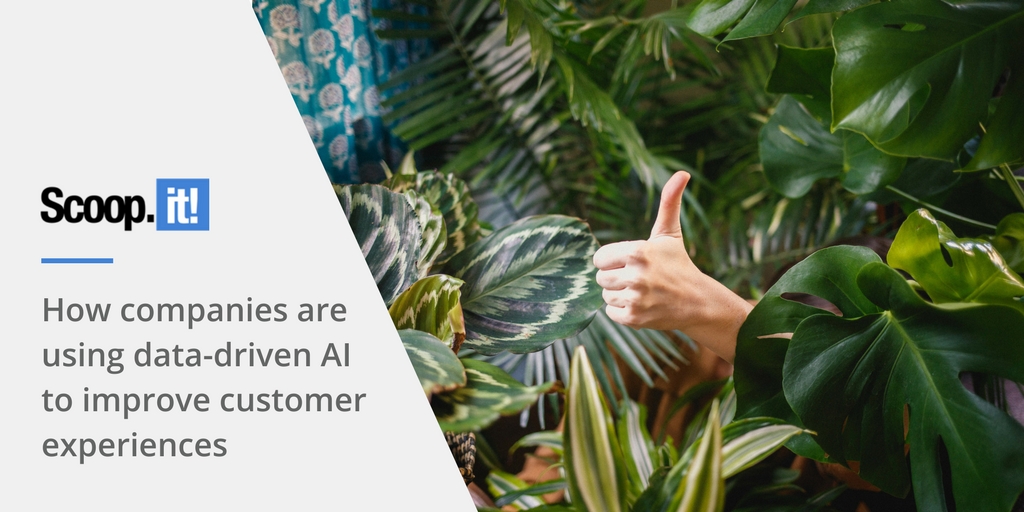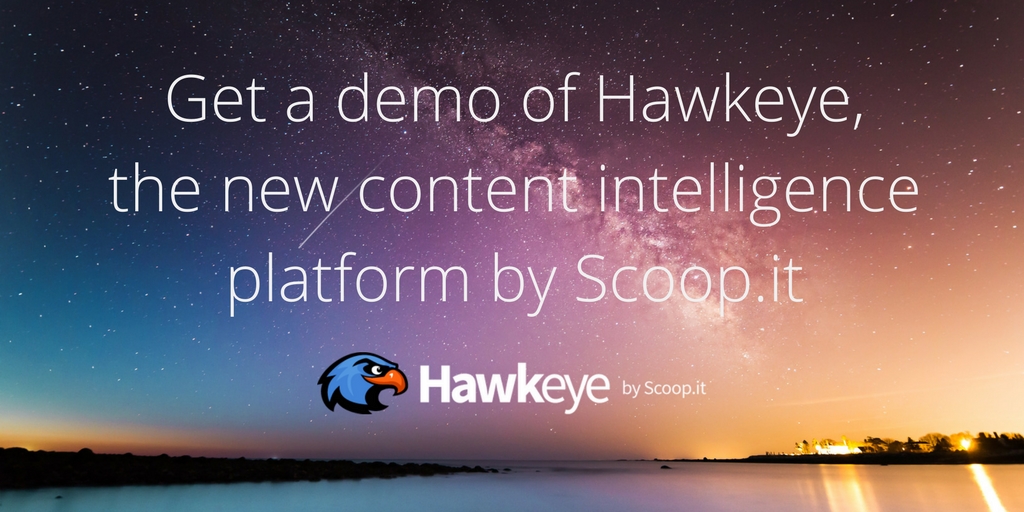
Artificial intelligence (AI) is the tech world’s golden goose. Machine learning’s incredible potential for task automation and productivity has a home in almost every industry, and companies all over the world are tapping into the technology. The integration of AI-powered chatbots and data-driven analytics can improve user experiences and reduce the workload on human service agents, benefiting customers and companies alike.
The future of AI technology is already here; here’s how companies are leveraging the power of AI.
The age of artificial intelligence
“Artificial intelligence” is broadly defined by the development of a computer program that can “learn” on its own, without input from a human programmer. Despite decades of research dating back to as early as WWII, no computer program currently exists that can match human intelligence. Many complex cognitive tasks are simply out of reach.
Despite its limitations, breakthroughs in machine learning now allow computers to mimic the neural networks we use to solve problems. This means that a certain degree of learning is possible, which is opening up new applications of AI technology that were unavailable just a few years ago. These systems aren’t truly “intelligent,” but they do allow the productive use of massive amounts of data, beyond what human analysts can manage.
For businesses, artificial intelligence promises the automation of many time-consuming tasks that currently require intensive human input. Artificial intelligence doesn’t necessarily mean that workforces will be completely replaced; AI-driven systems can help eliminate mundane and repetitive tasks, allowing human workers to focus on more creative and fulfilling work.
Artificial intelligence in the workplace

AI is already being implemented in business, and machine learning systems are being integrated broadly across multiple industries. Some applications show particular promise, and as AI technologies continue to develop, greater opportunities for integration will follow.
- Information Security: 44% of companies worldwide are already using machine learning algorithms to detect data security breaches. Companies can also use machine learning to address IT issues and develop new production management tools.
- Marketing: AI can be used to predict purchasing behavior, allowing for faster and more effective advertising. AI can also monitor social media and make use of the data for tailored marketing campaigns.
- Finance: AI is in use in the financial sector in transaction processing, audits, and regulation compliance. Many routine operations like trades may one day be completely automated.
- Customer Service: Customer interactions are being increasingly automated. IBM predicts that AI will address 85% of all customer service issues by 2020.
AI and the customer experience
Customer service has always been a major factor in a person’s experience with an opinion of a brand. According to Deloitte, 62% of companies consider customer experience to be a major differentiator in the competitive market. Keeping an existing user is much more valuable than trying to bring new customers to a brand, and attentive, effective CX is a great way to build a relationship over the long term.
A bad customer service experience can be a major business-killer; 52% to 66% of customers stop buying from a company after a negative interaction, and 95% of people share their negative experiences with friends and family. AI technology could help address these negative experiences by streamlining the customer support process.
Two major developments have propelled the migration to automated, AI-driven customer service tools. First, people’s comfort levels with messaging services has increased dramatically. People are using messages to interact with brands more often, and this interface is perfectly suited to AI algorithms. Second, breakthroughs in AI technology over the past five years have made automated representatives more useful. They’re able to handle a variety of requests and can do so without frustrating the customer in the process.
Benefits of AI in customer service
If you’re looking to increase your customer retention, improving your customer service should be a top priority. AI can improve customer experiences in myriad ways; these are just a few benefits driving the rapid uptake of machine learning.
Instant response
AI-driven interfaces can handle almost all routine requests, allowing your customer service team to focus on only the highest priority calls and messages. This improves the efficiency of your entire customer service process, cutting wait times and giving customers an instant response. In a recent survey by Zendesk, 69% of people attributed the speed of their request resolution to a positive customer service experience. AI algorithms are also being used in automating call distribution, further reducing hold times.
Better user interface
When utilizing an automated customer service tool, it’s best to be honest with your customers about it. Increasingly, customers prefer to engage with AI than with a human representative. In fact, 72% of millennials prefer self-service options to a phone call, and they are happy to use FAQs and bot services to solve their own issues. Catering to this new generation of customers is essential for cultivating a positive customer experience and, ultimately, a longer-term relationship.
Cost savings
For many businesses, outsourcing to a call center or hiring dedicated customer service reps can be a huge cost. When resources are limited, your customer service representatives can be overloaded and strained, leading to lost profits. An automated customer service AI can serve as a first line of defense, handling simpler questions and reducing the load on your human agents. IBM estimates a cost savings of 60% to 80% by switching to AI-powered services, compared with a traditional call center. AI services also cut training costs and are easily adapted over time to suit your business’s needs.
Businesses pushing AI in their customer experience

For businesses large and small, the future of AI is already taking shape. There’s a sea change coming for customer service, and these companies are tapping into the incredible opportunities AI offers for efficiency and growth.
As one of the largest messaging platforms on the web, Facebook has opened its doors broadly to AI chatbots for business. Many online stores are harnessing the familiar interface of Facebook’s Messenger app for their own customer service chats. Messenger’s chat features integrate with Facebook business pages, and plugins allow the chat to work directly from a company’s website.
LEGO
LEGO is one of the first toy companies to integrate an AI-powered chatbot into its customer experience, and it exemplifies the creative ways this technology can be used. LEGO introduced Ralph, the holiday gift bot, last year. Ralph uses AI and a series of simple questions to help guide customers to the perfect gift. It’s simple and effective, and it creates a unique and positive user experience.
Activision
Activision’s popular video game franchise Call of Duty recently used an AI chatbot as part of its promotion for a new sequel, Call of Duty: Infinite Warfare. The bot was an absolute success, generating over six million chat conversations in the first 24 hours after going live. The interactive nature of the AI-powered chatbot helped immerse fans in the game’s character plot before the game was even released.
The future of AI in business
One of the most important facets of AI technology is its potential for growth. The machine learning techniques available to businesses today may represent only a fraction of AI’s conceivable utility. Development in AI technology has been rapid, and the market for machine learning and deep learning programs is expected to grow dramatically in the coming years. In fact, according to a MemSQL survey, 61% of organizations chose machine learning and artificial intelligence as their main focus for 2019.
Data analysis
Every customer service interaction generates critical data about a company’s customer base. Some companies have already begun using this data in their marketing campaigns and strategic planning, but data analysis could be a major area for growth and widespread adoption in the near future as well. Machine learning’s ability to parse out patterns and trends from massive stores of customer data could one day make it a more effective personal marketing tool than any human.
Research and development
Better data analysis is also a key component for the development of new products. In a survey conducted by Google and MIT, 35% of companies stated that AI was already assisting with the development of next-generation products. The potential for products that incorporate AI directly is another big market driver, especially in smart home technology.
Personalized customer experience
Ultimately, better AI interfaces will help businesses create the holy grail of customer experiences: one-on-one, personalized consultation. As AI bots continue to develop natural language processing, the line between a chatbot and a personal assistant will blur even further.
Conclusion
AI-driven customer experience tools are readily available in 2018, and many businesses are finding new, innovative, and potentially game-changing ways of implementing them into their customer experience strategies. The trend into the future is clear: companies that take advantage of AI’s incredible potential are likely to thrive, and those that fail to adapt to these changes may be left behind. Investing in AI technology now can help your business capture the emerging market for data-driven user experiences and prepare for the future of AI integration.


